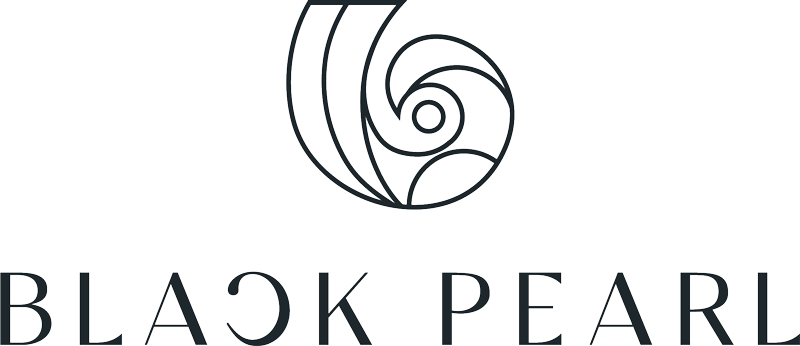In the words of photographer journalist Kwame Ayensu, “My style is a unique blend of documentary, experimental, and narrative elements with a distinctive visual voice. As an artist and storyteller, I am interested in the spaces between how people live, the communities we create, people’s little routines & traditions.”
Does perception matter?
Stereotypes and biases, often based on limited information or media portrayals, shape perception and profoundly influence sustainable change. According to a study by the Perception Institute, 70% of Americans hold implicit biases, impacting their perceptions of others and influencing their behaviors.
Influenced by cultural heritage, historical events, political stability, economic prosperity, social issues, and media portrayal, among other factors, the perception of a place, person, or thing significantly influences how it is perceived by others.

For instance, research from the World Tourism Organization reveals that 52% of travelers consider a destination’s reputation when planning a trip. Positive attributes, such as natural beauty and cultural festivals, can draw tourists, while negative factors like conflict and health crises prompt international concern. The World Economic Forum reports that countries with positive perceptions experience a 3% increase in tourist arrivals annually.
For example, positive perceptions can enhance a country’s reputation, attract tourists and investors, and foster diplomatic relations. Conversely, negative perceptions can deter visitors and investors, damage diplomatic ties, and affect trade and economic opportunities. Research conducted by the Reputation Institute shows that a 5% improvement in a country’s reputation leads to a 1.6% increase in foreign direct investment.
What role do storytellers play in the conversation?
Storytellers who advocate for authentic representation of their communities help ensure sustained attention and guide development in the right direction, thereby telling better stories. According to a survey by Edelman, 65% of citizens believe that brands should take a stand on social issues and communicate to that regard, highlighting the importance of storytelling.
We want to recognize and celebrate the power of storytelling across diverse perspectives and acknowledge how they shift perception with a few examples.
Kwame Ayensu is a photographer and filmmaker specialising in travel, lifestyle, documentary, and storytelling, based in Accra, Ghana. He represents Ghana’s diversity across race, age, gender identity, ability, and socio-economic backgrounds.

“As an artist and storyteller, I am interested in the spaces between how people live, the communities we create, people’s little routines & traditions.”
Ayensu documents surf culture in Ghana, for example. Surfing culture in Ghana defies stereotypes and challenges perceptions by showcasing a vibrant community that breaks barriers and embraces diversity. It surprises many by offering a surfing scene in a country more known for its rich culture and history. This cultural phenomenon not only promotes tourism by adding a new dimension to Ghana’s attractions but also integrates the country into the global surfing community. Furthermore, Ghana’s surfing culture empowers individuals by representing diversity, particularly with female surfers challenging gender norms. Moreover, it emphasizes environmental awareness, highlighting the surfing community’s commitment to preserving marine ecosystems.
Ayensu’s perspective highlights human richness, and promotes dialogue and awareness to celebrate Ghana’s complexity, fostering social change and equity.
Style House Files (SHF) is a fashion business development agency that focuses primarily on the advancement of the Nigerian and ultimately, the African textile and apparel industry. Their projects spotlight the nuances of the African apparel and textile sector. According to McKinsey, Africa’s fashion industry was projected to be worth $15.5 billion by 2023, underscoring the potential for growth and innovation.

They push for an authentic portrayal of the African continent, showcasing luxury and ready-to-wear designers and artisans, while also highlighting the continent’s rich history as a source of creativity and innovation.
“Elevating the brilliant solutions crafted by African designers on the international stage is not just a choice; it is our way of being and imperative for forging a truly sustainable fashion industry. Couture, once confined to the ateliers of Paris, now finds new definition in the vibrant landscapes of Africa. It’s a paradigm shift, a celebration of diversity, and a collective journey toward a more inclusive and sustainable future for fashion.”
Luxury and ready-to-wear fashion in Nigeria challenge perceptions by infusing rich cultural heritage into their creations, showcasing Africa’s diversity on a global scale and redefining luxury beyond Western ideals. Nigerian fashion designers empower local economies, challenging stereotypes of African nations as aid-dependent. Through celebrating diversity and inclusivity, they challenge conventional beauty standards prevalent in Western fashion.
Achieving international acclaim, Nigerian designers assert their influence on the global fashion stage, challenging the notion that high-end fashion is exclusive to the West. With a commitment to innovation and creativity, Nigerian fashion pushes boundaries and contributes fresh perspectives to the industry, challenging perceptions of African fashion as derivative.
Indigenous Fashion Projects (IFP) and Darwin Aboriginal Art Fair (DAAF) Foundation support the development of Australian Aboriginal and Torres Strait Islander textile and fashion practices and enterprises. They work with artists, designers, models, photographers, and those behind the scenes. The Australian Bureau of Statistics reports that Indigenous businesses contribute over $1.5 billion annually to the Australian economy.

Historical exploitation of indigenous peoples’ traditional crafts, including textiles and fashion, without proper acknowledgment or compensation is directly connected to colonialism, cultural appropriation, and unfair trade practices.
These impact indigenous artisans and communities, leading to economic disparities and cultural erosion. By platforming Aboriginal and Torres Strait Islander artists and designers, on their own terms, IFP helps reclaim ownership and control over indigenous cultural heritage.
Storytellers matter
Storytellers who advocate for authentic representation within their communities play a crucial role in ensuring that attention is directed in the right places, ultimately guiding development in a positive direction.
By telling more accurate and meaningful stories, they help shape perceptions and contribute to a narrative that fosters genuine progress and understanding.



